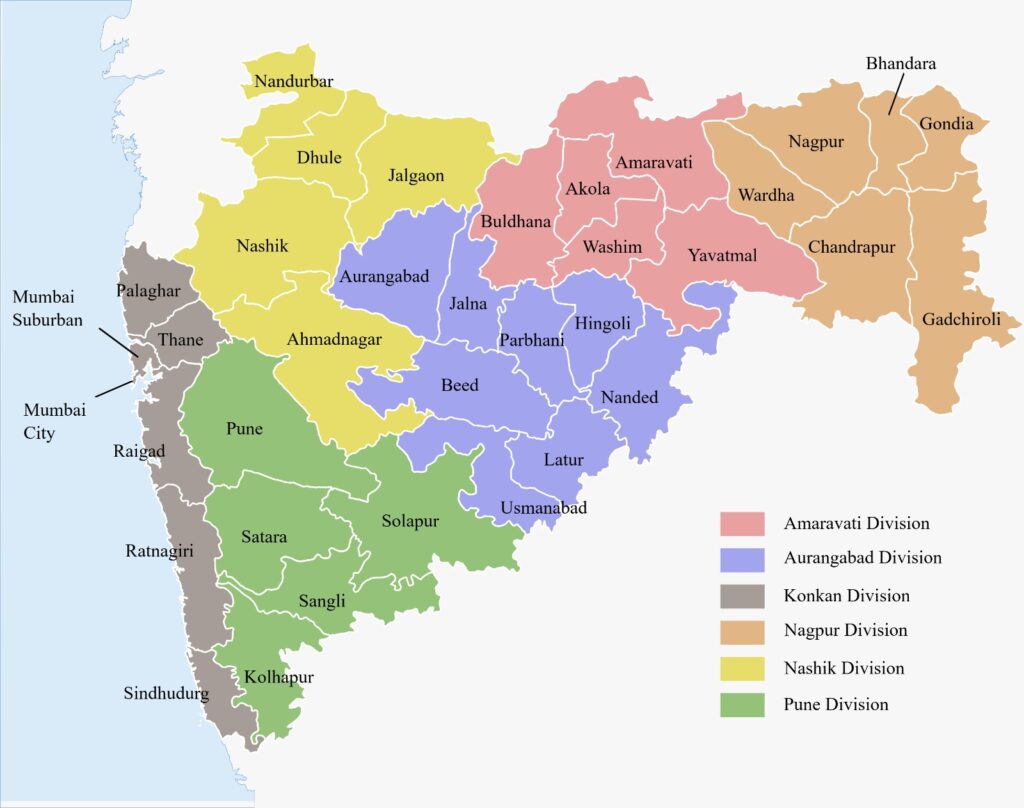Maharashtra Charts Bold Roadmap to 2047, Aims for $5 Trillion Economy and Sustainable Growth

Maharashtra Charts Bold Roadmap to 2047, Aims for $5 Trillion Economy and Sustainable Growth
In alignment with national development goals, the Government of Maharashtra has unveiled a visionary three-phased blueprint titled ‘Maharashtra 2047’, aimed at transforming the state into a global economic powerhouse while advancing sustainability and inclusive growth.
Following the successful completion of a 100-day governance programme that achieved over 700 departmental targets, the state has now launched an ambitious 150-day extended initiative. This roadmap outlines key milestones for 2029, 2035, and 2047, aligning with the national Viksit Bharat @2047 mission and Maharashtra’s Amrit Mahotsav vision.
Key Economic Targets and Policy Highlights
- $1 Trillion Economy by 2030; $5 Trillion by 2047: The government’s primary objective is to scale Maharashtra’s economy to $1 trillion by 2030 and further to $5 trillion by 2047.
- Boost to Manufacturing: Aiming to increase the manufacturing sector’s share to over 20% of the state’s GSDP under the new Industrial Policy.
- MAITRI 2.0 Launched: A streamlined single-window clearance system introduced to attract investments in sectors such as electric vehicles (EVs), semiconductors, green hydrogen, and data centres.
Record Investment and Global Outreach
Maharashtra attracted the highest Foreign Direct Investment (FDI) in India in Q1 of FY 2024–25, amounting to ₹1.39 lakh crore. At the World Economic Forum in Davos, the state signed MoUs worth ₹15.96 lakh crore — nearly half of which are already under implementation, particularly in Tier-2 and Tier-3 cities.
Infrastructure and Growth Projects
Major infrastructure developments like the Samruddhi Mahamarg, Atal Setu, and Coastal Road are accelerating statewide connectivity and growth. Central support has been instrumental in key mega-projects, including Vadhavan Port, Navi Mumbai International Airport, and Metro Rail systems.
Under NITI Aayog’s guidance, Maharashtra aims to develop the Mumbai Metropolitan Region (MMR) into a $1.5 trillion economic hub by 2047, for which the state is seeking special financial assistance from the Union Government.
Regional Industrial Development
As part of its decentralised growth strategy, the state is developing:
- Gadchiroli as a Steel City,
- Nagpur as a Defence Hub,
- Amravati as a Textile Cluster,
- Chhatrapati Sambhajinagar for EV manufacturing,
- AURIC City and a Smart Industrial City in Dighi (Raigad).
Services Sector and MSME Growth
Progressive policies have been introduced in IT, exports, logistics, AVGC (Animation, VFX, Gaming, Comics) and Global Capability Centres, giving a robust push to the service sector. Maharashtra leads the nation with over 60 lakh MSMEs registered on the national portal. Initiatives like the CM’s Employment Generation Programme have supported over 2 lakh entrepreneurs.
Innovation and Entertainment Ecosystem
At the WAVE Summit in Mumbai, MoUs worth ₹5,000 crore were signed for two international studios. Key developments include:
- Establishment of the India International Centre for Creative Technology (IICCT),
- Launch of the WAVES Index on NSE,
- Collaborations with the University of York and University of Western Australia,
- Plans for an Innovation City and a thriving ecosystem focused on AI, green energy, biotech, fintech, agritech, and smart manufacturing.
Renewable Energy and Climate Action
Maharashtra has signed energy purchase agreements for 45,500 MW, including 36,000 MW of green energy. By 2030, 52% of the state’s energy will be sourced from renewables.
Under the Mukhyamantri Saur Krushi Vahini Yojana 2.0, solar projects totalling 16,000 MW have commenced, with 1,400 MW already operational. By December 2026, all agricultural power supply will be solar and daytime-based.
The Solar Village Scheme has been launched in 100 villages, with 15 fully solarised. A policy for pumped storage projects (PSPs) has resulted in 15 agreements for 45 PSPs generating 62,125 MW, attracting ₹3.42 lakh crore in investment and creating over 96,000 jobs.
To promote environmental sustainability, the state is encouraging a circular economy and building recycling parks for e-waste, textiles, plastics, and automobiles. Preparations are also underway for the Nashik Kumbh Mela 2027, for which Maharashtra has sought guidance and assistance from the Centre.
Honouring Heritage and Language
In a significant cultural recognition, Prime Minister Narendra Modi has conferred ‘Classical Language’ status to Marathi, a matter of immense pride for the people of Maharashtra.
With a clear roadmap and strong Central support, Maharashtra is poised to play a leading role in building a developed India by 2047, blending economic ambition with environmental responsibility and cultural pride.












